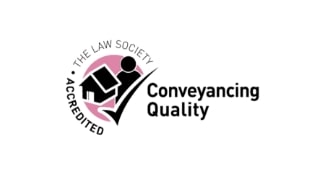Blog Page
Do You Know The Latest Rules Regarding Whistleblowing?
Whistleblowing is something that’s gained a great deal of attention lately, largely thanks to the still unnamed whistleblower in the US who made the revelations that led to the Democrats’ impeachment hearings against Donald Trump.
In the UK, we have laws relating to whistleblowing and the protection that’s afforded to anyone who’s considered to be a whistleblower. According to the government website, any employee, trainee, agency worker or member of a Limited Liability Partnership (LLP) can be protected by the legislation relating to whistleblowing.
But this only applies if you report certain kinds of wrongdoing, which include a criminal offence, risks to someone’s health and safety, a miscarriage of justice, the risk of or actual damage to the environment, a company breaking the law or someone covering up wrongdoing.
The caveat to any whistleblowing case is that the information that’s disclosed is in the public interest.
If you do come forward in this way, you’re protected under law against unfair dismissal or being treated unfairly.
Earlier this year, a case where an employee who had come forward as a whistleblower was later dismissed went all the way to the Supreme Court, and it’s important to understand the outcome.
Royal Mail employee Ms Jhuti was dismissed in 2014 and claimed that it was because she had reported concerns that one of her colleagues was infringing Ofcom’s guidance and company policy surrounding Tailor Made Incentives (TMIs), Personnel Today reported.
In October 2013, Ms Jhuti told her line manager Mr Widner of her concerns, but was told by Mr Widner that she didn’t fully understand the rules surrounding TMIs.
She believed that her job would be at risk if she pursued the allegations further, so she retracted her claim. However, Mr Widner repeatedly told her that her performance in her role was disappointing and that she was failing to meet the required expectations.
In January 2014, he sent an email to HR claiming that Ms Jhuti’s performance was underpar and that she’d need to be ‘exited’ if it did not improve.
One month later, he put her on a six-week performance improvement plan. As part of that process, he told Ms Jhuti that she should disclose all of her key travel client contacts that she’d made in previous roles.
When Ms Jhuti approached HR with her concerns about Mr Widner’s conduct, and said she felt it stemmed from his whistleblowing, she was told that his word would be believed over hers. In March of that year, she was signed off with work-related stress and never returned, later being dismissed.
At the time of her dismissal, Royal Mail said it was because of her poor performance in her role. However, Ms Jhuti made a claim for unfair dismissal against the organisation, alleging that Mr Widner had provided false information about her performance to the HR department.
The initial employment tribunal ruled in favour of Royal Mail, but the Employment Appeal Tribunal reversed the decision and found that Ms Jhuti’s whistleblowing was behind her dismissal. This was then taken to the Court of Appeal, which found the original tribunal to be correct.
In its judgement, the Court of Appeal stated that the tribunal only had to take the processes of the decision-maker – in this case the HR department – and the information they received into account.
That meant that the HR department believed Mr Widner’s information about Ms Jhuti’s performance to be correct and acted in dismissing her on the basis of that.
There’s one final twist to this story though. The Supreme Court has now ruled in favour of Ms Jhuti, finding that she was dismissed as a result of her whistleblowing.
The news provider published comments made by Lord Wilson in the Supreme Court’s judgement.
Lord Wilson stated: “If a person in the hierarchy of responsibility above the employee determines that she (or he) should be dismissed for a reason but hides it behind an invented reason which the decision-maker adopts, the reason for the dismissal was the hidden reason rather than the invented reason.”
Ultimately this means that employers who want to dismiss someone who has made whistleblowing claims are more likely to find that they are judged to have unfairly dismissed someone, unless they ensure that they have all the information at hand when making a decision.
In a recent article, Personnel Today even named this case as one of the ten most important employment law cases of 2019. It described the Supreme Court’s decision as a “landmark extension to whistleblowing protection”.
Fundamentally, it gives employees additional protection in that it allows them to bring a case for unfair dismissal if the person making the decision about their employment is manipulated by someone else as a result of them blowing the whistle.
It’s vital for employers to get this right, because the penalties can be hefty. This month, the BBC reported on the case of a nurse who was awarded £127,000 in an unfair dismissal claim, after taking Mid Essex Hospital Services NHS Trust to court.
Andrew Smith, who was sacked by the hospital trust in 2015, took his former employer to the tribunal because he believed the decision was the result of him alleging that staff were being bullied, not given proper breaks and not receiving a supplement to cover high living costs.
Mr Smith said he raised his concerns about patient and staff safety. When the employment tribunal found in his favour this year, he said that he was concerned the Mid Essex Hospital Services NHS Trust had not learned lessons from his case.
He also claimed that his 28-year career in nursing was ruined, because he was unable to find another job in the profession even after having been cleared of any misconduct by the tribunal.
What’s clear from these and other cases is that you shouldn’t take any chances when it comes to cases related to whistleblowing. As an employee, it’s sensible to get legal advice before you go down this route, and as an employer you need to seek legal advice to ensure you comply with the now-extended protection afforded to whistleblowers.
Get in touch with us today if you’re looking for experienced employment solicitors who can advise you, whether you’re an employee or an employer.











































